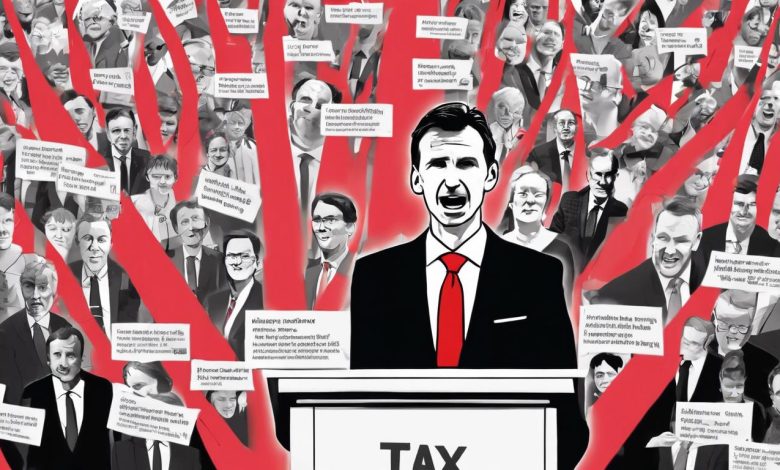Chancellor Jeremy Hunt announces major tax reforms, including the lowest personal tax rates since 1975

UK Chancellor Jeremy Hunt unveils a reduction in personal taxes to their lowest since 1975 and revamps the tax system for non-domiciled residents, amidst a mix of approval and concern from the public.
In a series of financial reforms, UK Chancellor Jeremy Hunt announced a reduction in personal taxes, marking the lowest levels since 1975, alongside a redesign of the tax system affecting non-domiciled residents. In his recent budget presentation, Hunt revealed a 2p decrease in national insurance rates, expected to benefit 27 million workers and 2 million self-employed individuals, granting them an annual savings of approximately £450 and £350 respectively. This decision, while offering immediate financial relief, comes with concerns over the impact of frozen income tax thresholds, potentially countering benefits due to fiscal drag.
The reforms extend to non-domiciled residents, altering an established tax scheme by introducing a residence-based system to replace the domicile concept. This significant shift aims to balance competitiveness and fairness in tax revenues, with the new rules slated for April 2025 implementation. Changes include limiting non-doms’ tax privileges to a four-year period, potentially generating £2.7 billion annually by 2028-29, despite some concerns over international parity and implications on inheritance tax.
Further, Hunt’s budget has initiated discussions on the phased elimination of national insurance, citing its role as the second-largest revenue source yet critiqued for double-taxing work income. The potential removal of national insurance raises questions about alternative revenue sources and impacts on the benefits system, with considerations for income tax adjustments to compensate for the shortfall.
Public response to the budget announcement has been a mix of intrigue and concern, evident from a surge in online searches for clarification on how the changes affect individuals. Notable areas of interest include the implications for workers, non-doms, and child benefit recipients, alongside new taxes affecting vapers. Despite the economic relief for some sectors, worries persist for pensioners, who, according to critics, stand to lose out due to the absence of direct benefits from the national insurance cuts and other budgetary decisions.
Defending his budget, Hunt emphasized the aim to prioritize ordinary families and workers while acknowledging the challenges and controversies surrounding the reforms. The government’s strategy, balancing immediate tax relief with long-term fiscal adjustments, continues to spark debate among economists, policymakers, and the public, as the UK navigates its complex budgetary landscape.








